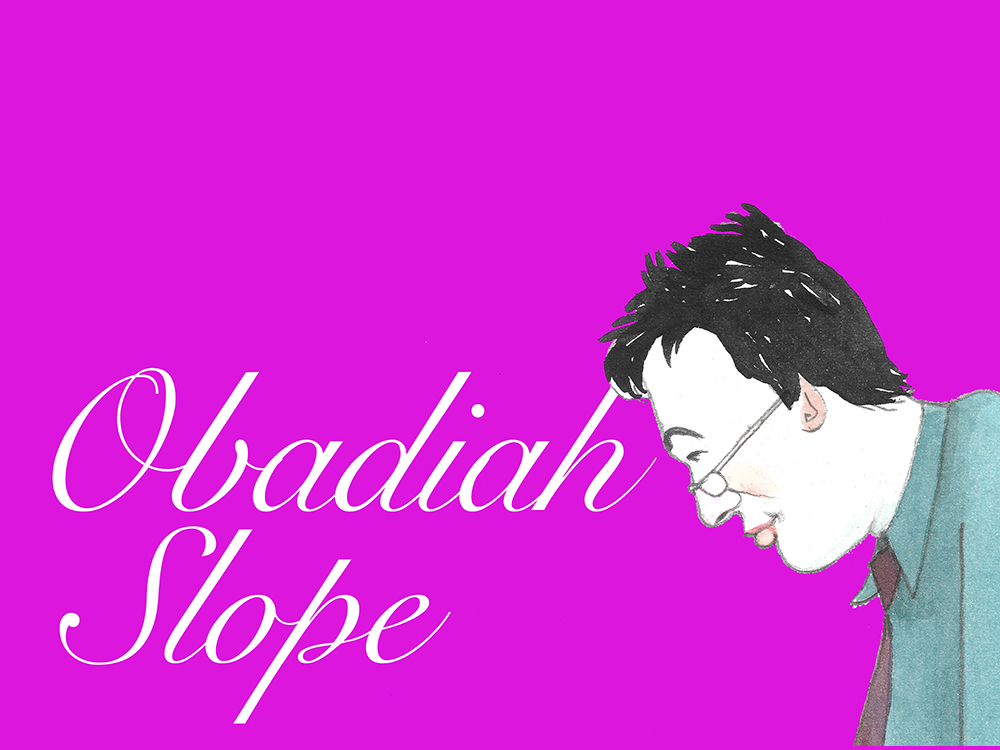An Obadiah Slope column
A great big sound: Obadiah was sitting in the cheap seats in this weekend’s AFL match between the Fremantle Dockers and the Greater Western Sydney (GWS) Giants – just behind the orange-clad GWS cheer squad. That’s when he discovered that GWS is the team Biblically-minded people should follow.
Obadiah spotted a banner raised by a man wearing a full orange suit in the Giant’s cheer squad’s front row, a banner reading “We are the Sydney Giants John 3:16-17.” (Actually, Obadiah was reading it backwards from behind, but that is what it said, honest.) Then, later as Jesse Hogan scored his fifth goal (out of six), another banner was hoisted that read “Hogans our hero Roman’s 8:38-39.”
Theological Education Crisis: Peter Sherlock, former Vice Chancellor of the University of Divinity, told a special meeting of the St James Institute that tertiary theological education is in crisis. The supply of students is drying up.
“Tertiarry theological education is a victim of its own Success,” Sherlock said. In the 1970s, it got on the bandwagon of the expansion of tertiary education, and there was a high take-up in the 70s, 80s 90s. But education has got more expensive, and [theological institutions] face a challenge of viability. What do you do if you have three or four students in the first year of New Testament? Can you have a viable class?”
Sherlock pointed to the disappearance of lay people doing full theological degrees, taking nine years part-time. “But now we have simplified them down, and people do grad certificates or unaccredited studies.” the classrooms are emptier.
Paul Oslington, Dean of Business and Professor of Economics at Alphacrucis University College, provided an economist’s perspective. “We need enlightened thinking. We need to merge the peak councils [that accredit denominational colleges] such as the Australian College of Theology and the Sydney College of Divinity.” He predicted “a very large rationalisation with one large provider in each theological tradition.”
The seminar was compered by Andrew West of ABC’s Religion and Ethics Report to go to air in September. It will be worth a listen.
###
A blight in old blighty: Premier Christianity magazine asks, “Are half of UK Bible colleges about to close?” They report that the head of Kings Evangelical Divinity School (KEDS), Dr Anthony Royle, said, “In recent meetings with the Association of Bible College Principals, it seems like 50 per cent of Christian Bible Colleges in the UK will close in the next year or two.”
He cites a Covid hangover, a cost of living crisis and “relebtless church decline.”
###
The week’s reading: Obadiah has been reading up on Bayard Rustin the organisational genius behind Martin Luther King Jr’s March on Washington. That march has been in the news lately with former President Trump claiming he drew a bigger crowd to the same site on January 6 2021. Unlikely.
Riustin was both openly gay and a former communist who left the party. When following the dictates of Stalin, it shifted away from the civil rights movement to pour its energy into the war effort once the Soviet Union worked out what side it was on.
It was Rustin who introduced King to Gandhian non-violent resistance. His name – along with Stanley Levison, who organised the finances for King’s movement using skills from a time as paymaster for the Communist party – runs through Taylor Branch’s monumental three-volume biography of King America in the King Years.
Taylor Branch describes Rustin “He opened up two-way traffic with movement tacticians of the outside world, bringing with him experiences and influences far beyond the confines of the Negro church spirit that had sustained the boycott thus far. Rustin was an internationally respected pacifist, as well as a vagabond minstrel, penniless world traveler, sophisticated collector of African and pre-Columbian art, and a bohemian Greenwich Village philosopher. Nearly forty-six years old when he got to Montgomery, he had lived more or less a hobo’s life, committed to the ideals of world peace and racial brotherhood. [King’s companions] could tell from the first sight of him—tall and bony, handsome, animated, and conspiratorial, full of ideas that spilled out in a high-pitched voice and a proud but squeaky West Indian accent—that Rustin was a colorful character. It would have taxed the creative powers of Dickens or Hugo to invent him.”
By the time he met King, he had spent 22 days on a North Carolina chain gang arrested as part of an early version of the freedom rides. He had also been jailed for two years for his pacifism during World War 2. He brought hard-won organising skills.
So why is Rustin important for Christians to know about? Because of the myth that the civil rights movement – just like abolitionism – was won by an exclusively Christian leadership. Not so – assorted communists, gays, and atheists were needed, too.

